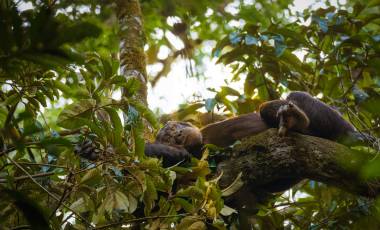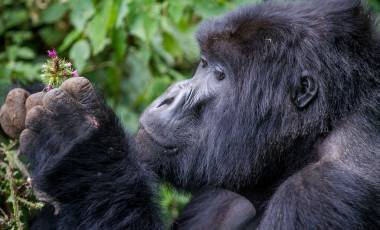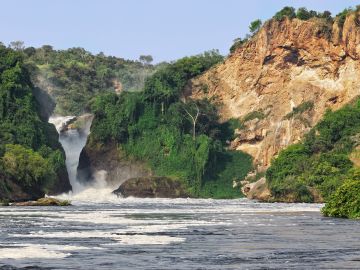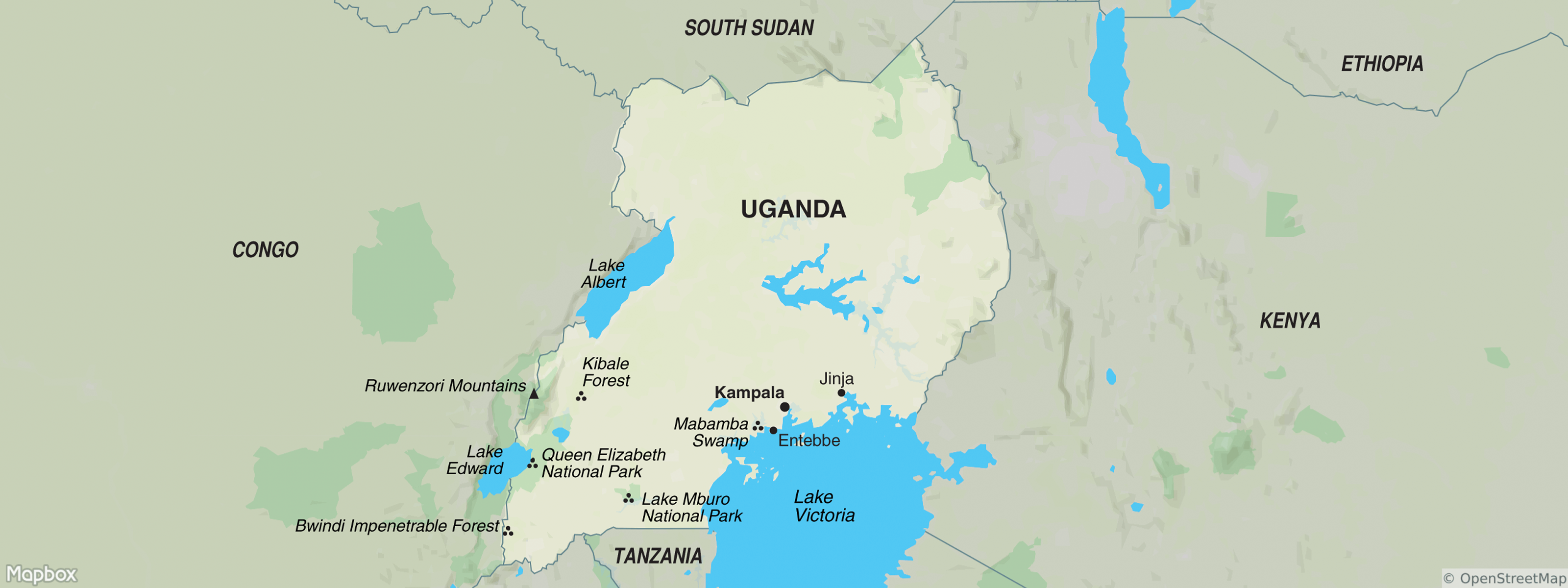Home to a source of the longest river on Earth, equatorial rainforest and, of course, primates
Chimps & Gorillas of Uganda

Gorillas & Masai Mara – Camping Reverse

Shape your adventure: With Extensions, every beginning and ending is yours to create. Learn More.

Home to a source of the longest river on Earth, equatorial rainforest and, of course, primates


Among the best places to visit in Uganda are undoubtedly its national parks. From the renowned Bwindi Impenetrable National Park, home to the majestic mountain gorillas, to the diverse Queen Elizabeth National Park, famous for its tree-climbing lions, Uganda has a wealth of natural wonders and wildlife to discover. Additionally, journey to the source of the Nile in Jinja, explore the spectacular Murchison Falls National Park and enjoy an awe-inspiring game drive along the Rwenzori Mountains to soak up views of the glaciated peaks.
Uganda enjoys a tropical climate, meaning it’s a year-round destination. However, the best time to visit is during the dry seasons, which typically fall between June to September and December to February. These months offer clear skies, less rainfall and better chances of spotting wildlife. It’s important to note that gorilla trekking is possible throughout the year, but the rainy seasons (April to May and October to November) can make the trekking trails more challenging. However, rain can also occur during the dry season so it’s always best to be prepared whenever you travel.
To see the mountain gorillas in their natural habitat in Uganda, you must obtain a permit, which allows you to trek through the forests of Bwindi Impenetrable National Park to go in search of these majestic primates. These permits are limited and often need to be booked well in advance. On our gorilla tours in Uganda, we veer off the trails of Bwindi Impenetrable Forest and trek through the undergrowth and up some steep ascents. The ground can often be muddy and slippery, and it can take anything from one to six hours to track down a family of gorillas, so you will need to have a reasonable level of fitness.
Uganda is a natural paradise for wildlife lovers and is home to a wide range of species. Besides the iconic mountain gorillas at Bwindi Impenetrable National Park, you can encounter chimpanzees and other primates in Kibale Forest National Park or Budongo Forest Reserve. If you want to witness the iconic Big Five, which includes elephants, lions, leopards, rhinoceros, and buffalos, head to Murchison Falls National Park and Queen Elizabeth National Park. Species such as the rare shoebill stork and the papyrus yellow warbler are just two of the 190,000 birds that are native to Mabamba Swamp, which can be found to the west of Entebbe, along the northern shores of Lake Victoria.
When preparing for a Uganda tour, it is essential to pack appropriate clothing and gear but most importantly, take comfortable and sturdy walking shoes. You’ll need to prepare for rain because even if you’re travelling during the dry season, there’s always a chance of a downpour. Lightweight and breathable layers of clothing, a hat, sunscreen and insect repellent are all essentials, and don’t forget to pack your camera! It is also advisable to bring a waterproof jacket and extra layers for the cooler evenings and early mornings, as temperatures can vary, especially in the mountainous regions.
You will need to be vaccinated against yellow fever when travelling to Uganda and you’ll also need to bring a vaccination certificate with you. Although not essential, we do recommend vaccinations for typhoid, polio, hepatitis A and B, rabies, tuberculosis, cholera and tetanus. To reduce the risk of malaria from mosquito bites, you will need Malaria prophylaxis and in addition to this, please take the usual precautions to protect yourself from bites. Always speak to your medical professional before you travel.
The duration of your stay in Uganda will depend on various factors such as your interests and itinerary. Known as the “Pearl of Africa,” Uganda offers a wealth of experiences, ranging from wildlife safaris in national parks to exploring the source of the Nile River. To immerse yourself fully in the beauty and wildlife of this diverse country, it is recommended to spend between 10 and 15 days here. This allows ample time to explore popular destinations like Bwindi Impenetrable National Park for gorilla trekking, Queen Elizabeth National Park for game drives and Murchison Falls National Park for scenic boat cruises.

Get regular inspiration straight to your inbox from Exodus’ experts.